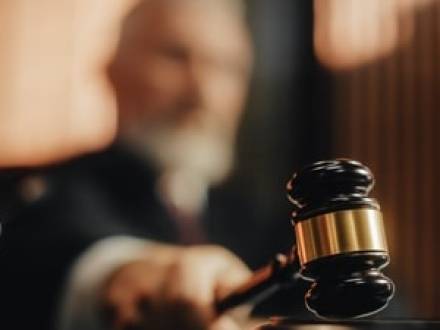How to Get a Modification in Sentencing
 Sentencing in criminal cases can have long-lasting impacts on your life. However, under certain circumstances, it may be possible to seek a modification of a sentence. This process, while challenging, can provide an opportunity to potentially reduce your sentence or alter its terms. A Maryland lawyer can help you understand the intricacies of sentence modification.
Sentencing in criminal cases can have long-lasting impacts on your life. However, under certain circumstances, it may be possible to seek a modification of a sentence. This process, while challenging, can provide an opportunity to potentially reduce your sentence or alter its terms. A Maryland lawyer can help you understand the intricacies of sentence modification.
Is it Possible to Get a Modification?
In Maryland, the possibility of sentence modification exists, but it is subject to specific rules and limitations. The Maryland Rules of Criminal Procedure, particularly Rule 4-345, govern the process of modifying a sentence. Generally, a court has revisory power over a sentence for five years from the date the sentence was originally imposed or when the defendant was received by the Division of Correction, whichever is later. However, there are exceptions to this rule, such as the court’s ability to correct an illegal sentence at any time.
The decision to modify a sentence is ultimately at the discretion of the judge who imposed the original sentence. Modifications can include:
- Reducing the length of a sentence.
- Changing the type of sentence (e.g., from incarceration to probation).
- Altering specific conditions of the sentence.
Grounds for Seeking a Sentence Modification
Several factors may be considered when requesting a sentence modification:
- Rehabilitation: Evidence of significant rehabilitation during incarceration.
- New Information: Information that was not available at the time of sentencing.
- Health Issues: Severe health problems that develop after sentencing.
- Family Circumstances: Significant changes in family circumstances.
- Good Behavior: A record of exemplary behavior during incarceration.
The Process of Seeking a Sentence Modification
The process begins with filing a Motion for Modification of Sentence with the court that imposed the original sentence. This motion must be filed within 90 days of the imposition of the sentence unless the court expressly reserves the right to modify the sentence for a longer period. The motion should clearly state the reasons for seeking modification and include any supporting evidence.
After filing, the State’s Attorney’s office will have an opportunity to respond to the motion. The court may hold a hearing to consider the motion, although this is not always required. After reviewing the motion, any responses, and potentially holding a hearing, the judge will decide whether to grant the modification.
Strategies for a Successful Modification Request
You must provide concrete evidence of personal growth, rehabilitation, or changed circumstances since the original sentencing when seeking a sentence modification. Gathering support through letters from correctional officers, counselors, or community members can bolster your case. Be specific in outlining how the proposed modification would benefit both the individual and society.
If applicable, demonstrate an understanding of the impact of the crime on victims and show remorse. Presenting a detailed plan for continued rehabilitation or community reintegration if the modification is granted can also strengthen your request.
Limitations and Considerations
Certain sentences in Maryland are not eligible for modification. These include mandatory minimum sentences for certain drug offenses, sentences resulting from a binding plea agreement, and sentences where modification was expressly prohibited as part of a plea deal.
The court may view multiple requests for modification within the five years unfavorably unless there are significant new circumstances.
Contact a Towson, MD Criminal Defense Lawyer
If you are considering seeking a sentence modification, it may be beneficial to consult with a Bel Air, MD criminal defense attorney who can provide personalized advice based on the specifics of your case. Call Seger Law, LLC at 443-208-4692 to begin with a free consultation.


